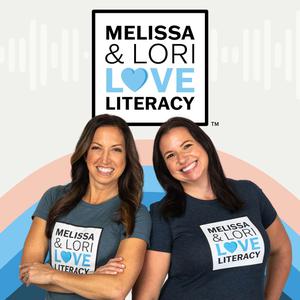
Melissa & Lori Love Literacy ™
Powered by Great Minds
This podcast is for educators interested in the science of reading who want to hear the latest research on teaching reading and writing and learn how to make it practical for your classroom. Our guests include some of the most well-known literacy researchers and experts, as well as teachers and leaders doing the hard work every day!
- 44 minutes 37 seconds[Listen Again] The Writing Revolution with Judith Hochman and Natalie Wexler
From July 22, 2022
The Writing Revolution authors, Judith Hochman and Natalie Wexler, share a 'revolutionary' approach to writing. The best part: It begins at the sentence level AND content knowledge drives the rigor. Moreover, there is an overlap in reading, writing, and critical thinking.
What are the principles of The Writing Revolution? There are six:- Students need explicit instruction in writing, beginning in the early elementary grades.
- Sentences are the building blocks of all writing.
- When embedded in the content of the curriculum, writing instruction is a powerful teaching tool.
- The content of the curriculum drives the rigor of the writing activities.
- Grammar is best taught in the context of student writing.
- The two most important phases of the writing process are planning and revising.
Resources- The Writing Revolution, Not for Profit
- The Writing Revolution, The Atlantic, October 2012
- Writing and cognitive load theory, Natalie Wexler
We answer your questions about teaching reading in The Literacy 50-A Q&A Handbook for Teachers: Real-World Answers to Questions About Reading That Keep You Up at Night.
Grab free resources and episode alerts! Sign up for our email list at literacypodcast.com.
Join our community on Facebook, and follow us on Instagram, Facebook, & Twitter.17 January 2025, 9:00 am - 27 minutes 33 secondsEp. 214 Aligning Early Writing Routines to Research
What if young students could transform writing from a daunting task into an exciting journey of self-expression?
In this episode, Laura Stam, a second-grade teacher from Wyoming, discusses her transformative journey in writing instruction. Struggling initially with an unstructured writing curriculum, Laura discovered innovative methods to support her students.
You will hear how Laura has incorporated strategies fromThe Writing Revolution and self-regulated strategy development (SRSD) to empower her students to write confidently about their learning topics, such as the Revolutionary War and ancient China. Also, you will learn how strategic tools like mnemonics, goal setting, and structured sentence expansion activities have made her students more independent writers.Resources:
- Focus Article: "A Path to Better Writing" by Steve Graham and Karen Harris
- Laura's Teaching Videos
- 2nd Grade Writing: CKLA, ThinkSRSD, and The Writing Revolution
- Writing with Core Knowledge Language Arts (CKLA) and ThinkSRSD (2nd grade)
- Core Knowledge Language Arts (CKLA) Grade 2: Collaborative Writing with The Magic Fish (1/2)
Core Knowledge Language Arts (CKLA) Grade 2: Writing with The Magic Fish (2/2) - Core Knowledge Language Arts Grade 2: Indus River Writing Demo
- Institute for Excellence in Writing
- The Writing Revolution
- From Struggle to Success: Navigating the Writing Process With Self-Regulated Strategy Development (SRSD)
We answer your questions about teaching reading in The Literacy 50-A Q&A Handbook for Teachers: Real-World Answers to Questions About Reading That Keep You Up at Night.
Grab free resources and episode alerts! Sign up for our email list at literacypodcast.com.
Join our community on Facebook, and follow us on Instagram, Facebook, & Twitter.10 January 2025, 9:00 am - 1 hour 4 minutesEp. 213: Evidence-Based Writing Instruction for Young Learners with Karen Harris & Young Suk Grace Kim
This episode highlights the close connection between reading and writing and the importance of teaching them together. Young-Suk Kim uses a structural house analogy to explain their interdependence. Karen Harris introduces the SRSD (Self-Regulated Strategy Development) model, focusing on evidence-based practices that build self-regulation and explicit instruction for writing. We discuss the researchers brand new study with 1st and 2nd graders, including the SRSD Plus approach, which adds instruction in handwriting, spelling, and oral language. Our guests share practical tips for improving handwriting fluency and research on SRSD Plus’s positive impact on early writing and student confidence, offering valuable insights for classroom teaching.
Resources
- Enhancing Reading and Writing Skills through Systematically Integrated Instruction (with HOUSE graphic that Young explains in the beginning of the podcast)
- The Science of Teaching Reading is Incomplete without the Science of Writing: A Randomized Control Trial of Integrated Teaching of Reading and Writing
- Yes, they can: Developing transcription skills and oral language in tandem with SRSD instruction on close reading of science text to write informative essays at grades 1 and 2
We answer your questions about teaching reading in The Literacy 50-A Q&A Handbook for Teachers: Real-World Answers to Questions About Reading That Keep You Up at Night.
Grab free resources and episode alerts! Sign up for our email list at literacypodcast.com.
Join our community on Facebook, and follow us on Instagram, Facebook, & Twitter.3 January 2025, 9:00 am - 1 minute 3 secondsMelissa & Lori Love Literacy Trailer
Melissa & Lori Love Literacy™ is a podcast for teachers. The hosts are your classroom-next-door teacher friends turned podcasters learning with you. Episodes feature top literacy experts and teachers who are putting the science of reading into practice. Melissa & Lori bridge the gap between the latest research and your day-to-day teaching.
We answer your questions about teaching reading in The Literacy 50-A Q&A Handbook for Teachers: Real-World Answers to Questions About Reading That Keep You Up at Night.
Grab free resources and episode alerts! Sign up for our email list at literacypodcast.com.
Join our community on Facebook, and follow us on Instagram, Facebook, & Twitter.31 December 2024, 9:00 am - 54 minutes 55 secondsTop Episode of 2024: 193: Systems to Get Better Reading Results with Stephanie Stollar
From 5/10/24
In this conversation, Stephanie Stollar discusses the implementation of Multi-Tiered Systems of Support (MTSS). MTSS is a framework for school improvement that helps to provide support for students with various needs. The MTSS framework focuses on using data to identify barriers to student performance and making plans to eliminate those barriers. Stollar explains that word recognition skills are more discreet and sequential, while language comprehension skills are more unconstrained and complex. Stephanie recommends that special education resources should be blended with general education resources from the beginning, and students should receive intensive support as soon as it is needed, without having to go through a series of interventions and assessments. She also emphasizes the importance of evidence-aligned instruction and the need for team-based decision-making in the MTSS model.Takeaways
- MTSS is a framework for school improvement that helps teachers provide support for students with various needs
- The tiers in MTSS are prevention of reading failure, with tier one being primary prevention for all students, tier two providing extra support for students at higher risk, and tier three offering intensive and individualized support for struggling readers
- Differentiate tier one instruction and provide targeted instruction based on screening and diagnostic data
- Assessments in MTSS include screening assessments to identify students at risk, diagnostic assessments to determine specific instructional needs, and progress monitoring assessments to track student progress.
- Blend special education resources with general education resources from the beginning and provide intensive support as soon as it is needed.
- Focus on evidence-aligned instruction and team-based decision-making in the MTSS model.
Resources
- Stephanie's Reading Science Academy
- Stephanie's MTSS Course
- Watch Stephanie discuss...
We answer your questions about teaching reading in The Literacy 50-A Q&A Handbook for Teachers: Real-World Answers to Questions About Reading That Keep You Up at Night.
Grab free resources and episode alerts! Sign up for our email list at literacypodcast.com.
Join our community on Facebook, and follow us on Instagram, Facebook, & Twitter.27 December 2024, 9:00 am - 41 minutes 48 secondsEp. 212: Beyond the Science of Reading with Natalie Wexler
Phonics alone won’t solve the literacy crisis.
Natalie Wexler's new book: Beyond the Science of Reading: Connecting Literacy Instruction to the Science of Learning advocates, which connects the science of reading to the broader science of learning.
Key Points:
- The current reading crisis is fundamentally a learning crisis.
- Cognitive science principles, such as retrieval practice, should apply to all learning.
- Advocating for a knowledge-building curriculum supports all students, particularly those who struggle.
- Writing instruction should start with explicit techniques.
- All teachers should integrate literacy within their content.
Beyond the Science of Reading advocates for an integrated approach to literacy that combines cognitive science principles with literacy instruction, emphasizing content knowledge, explicit writing instruction, and cross-disciplinary teaching to boost student success.
Resources
- Natalie's new book Beyond the Science of Reading: Connecting Literacy Instruction to the Science of Learning
- Do We Need to Teach Comprehension Strategies Explicitly?
- The Writing Effect
We answer your questions about teaching reading in The Literacy 50-A Q&A Handbook for Teachers: Real-World Answers to Questions About Reading That Keep You Up at Night.
Grab free resources and episode alerts! Sign up for our email list at literacypodcast.com.
Join our community on Facebook, and follow us on Instagram, Facebook, & Twitter.20 December 2024, 9:00 am - 1 hour 11 minutes[Listen Again] Ep. 62: Effective Fluency Instruction with Tim Rasinski
From June 22, 2021
In this episode, reading and fluency expert Tim Rasinski tells us all about effective fluency instruction! How does repeated reading build fluency instruction? Why does text difficulty level impact fluency practice? What do effective accuracy, automaticity, and expression sound like?
Check out research, articles, and helpful materials located on Tim's website and follow Tim on Twitter @TimRasinski1. We also discuss this piece by Nell Duke.
We answer your questions about teaching reading in The Literacy 50-A Q&A Handbook for Teachers: Real-World Answers to Questions About Reading That Keep You Up at Night.
Grab free resources and episode alerts! Sign up for our email list at literacypodcast.com.
Join our community on Facebook, and follow us on Instagram, Facebook, & Twitter.13 December 2024, 9:00 am - 50 minutes 12 secondsEp. 211: Building Fluency with POSSUM with Melissa Orkin and Maryanne Wolf
Fluency is a crucial aspect of reading. It involves automaticity and the ability to connect different aspects of word knowledge.
In this episode, Maryanne Wolf and Melissa Orkin discuss:
- the importance of fluency in reading
- the factors that contribute to fluent reading
- the need for an integrative approach to fluency instruction
- the POSSUM approach to building word knowledge
Big Takeaway: Fluency is essential for comprehension and has social-emotional implications for struggling readers. The POSSUM approach can help students make the needed connections to be able to read fluently.
Want to Learn More?
- The More You Know: How Teaching Multiple Aspects of Word Knowledge
Builds Fluency Skills by Melissa Orkin, Kirk Vanacore, Laura Rhinehart,
Rebecca Gotlieb, and Maryanne Wolf - Building Fluency with POSSUM
- Downloadable lessons featuring the POSSUM approach:
- Practice Doesn’t Make Perfect: Repeated Reading Is No More Effective Than Continuous Reading for Improving Fluency and Comprehension in School-Age Struggling Readers by Elizabeth S. Norton
- RAN and the reading brain with Elizabeth Norton (youtube video)
- Word Finder wordfinder.yourdictionary.com - find words with similar patterns!
- Crafting Minds Group
- NIDO Learning
We answer your questions about teaching reading in The Literacy 50-A Q&A Handbook for Teachers: Real-World Answers to Questions About Reading That Keep You Up at Night.
Grab free resources and episode alerts! Sign up for our email list at literacypodcast.com.
Join our community on Facebook, and follow us on Instagram, Facebook, & Twitter.6 December 2024, 9:00 am - 57 minutes 45 seconds[Listen Again] Ep. 150: Science of Reading for ALL Students: Intervention for Secondary Students
Secondary educators have students in their classrooms who weren’t taught to read. Because of these reading deficits, students likely have a difficult time accessing secondary texts and tasks. Our guests today, Supt. Sherry Sousa and Educator Julie Brown, discuss a secondary intervention they developed that WORKS and is totally doable. The best part? Students partake in the intervention in addition to - not instead of - their regular high school English classes.
Resources
- No Time to Waste: Structured Literacy for Young Adults
- Ameer Baraka video: https://www.youtube.com/watch?v=jyFiOYCqvyk
We answer your questions about teaching reading in The Literacy 50-A Q&A Handbook for Teachers: Real-World Answers to Questions About Reading That Keep You Up at Night.
Grab free resources and episode alerts! Sign up for our email list at literacypodcast.com.
Join our community on Facebook, and follow us on Instagram, Facebook, & Twitter.29 November 2024, 9:00 am - 49 minutes 45 secondsEp. 210: How Can You Improve Fluency for Older Students? with Janee' Butler
Fluency is complex, especially for older students.
In this episode, Janee' Butler shares:- how fluency instruction looks from early grades to secondary
- about challenges students and teachers face,
- practical strategies for improving fluency,
- a reminder not to forget about student motivation, especially for older students struggling with reading fluently.
The Big Takeway: Reading fluency is essential for older students to be able to comprehend what they read. Teachers need the knowledge of how to help each student!
Want to Learn More?
- Janee's presentation at PaTTAN Symposium 2024: Achieving Adolescent Literacy Proficiency: The Importance of Fluency
- Teaching Oral Reading Fluency to Older Students by Tim Shanahan
- Phonics and Spelling through Phoneme-Grapheme Mapping by Catherine Grace
- Really Great Reading assessments (free)
- DIBELS assessments- 8th Edition (free)
- Plain Talk About Literacy & Learning Conference 2025
- email Janee': [email protected]
We answer your questions about teaching reading in The Literacy 50-A Q&A Handbook for Teachers: Real-World Answers to Questions About Reading That Keep You Up at Night.
Grab free resources and episode alerts! Sign up for our email list at literacypodcast.com.
Join our community on Facebook, and follow us on Instagram, Facebook, & Twitter.22 November 2024, 9:00 am - 1 hour 11 minutes[Listen Again] Ep. 110: Baltimore Secondary Literacy Teachers Talk Fluency
From June 3, 2022
Today middle school educators from Baltimore City Public Schools join us to discuss their focus on fluency through Continuous Improvement work with fluency using HQC. What is Continuous Improvement? Why is this a useful framework? “Possibly wrong, definitely incomplete” is a mantra that resonates. The educators share their approach, impact, and outcomes for students. Secondary teachers… this one’s for you.Related Episodes
- Ep. 98: Improving Student Reading Growth in Months with Fluency Instruction and Practice
- Ep. 62: Effective Fluency Instruction with Tim Rasinski
Resources
- Carnegie Foundation Continuous Improvement in Education Resources such as videos, tools, and publications
We answer your questions about teaching reading in The Literacy 50-A Q&A Handbook for Teachers: Real-World Answers to Questions About Reading That Keep You Up at Night.
Grab free resources and episode alerts! Sign up for our email list at literacypodcast.com.
Join our community on Facebook, and follow us on Instagram, Facebook, & Twitter.15 November 2024, 9:00 am - More Episodes? Get the App
Your feedback is valuable to us. Should you encounter any bugs, glitches, lack of functionality or other problems, please email us on [email protected] or join Moon.FM Telegram Group where you can talk directly to the dev team who are happy to answer any queries.
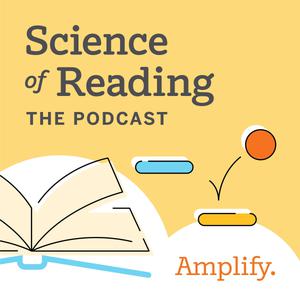 Science of Reading: The Podcast
Science of Reading: The Podcast
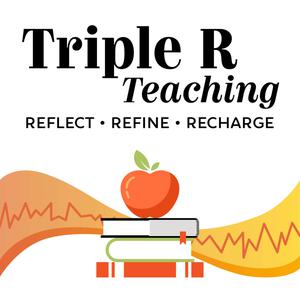 Triple R Teaching
Triple R Teaching
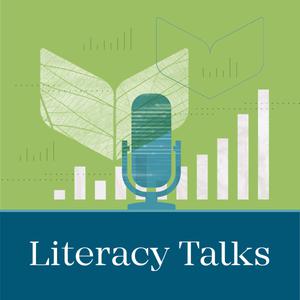 Literacy Talks
Literacy Talks
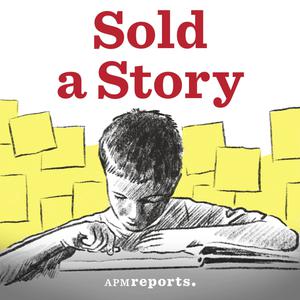 Sold a Story
Sold a Story
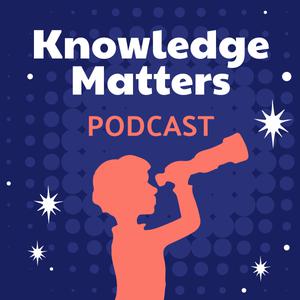 The Knowledge Matters Podcast
The Knowledge Matters Podcast